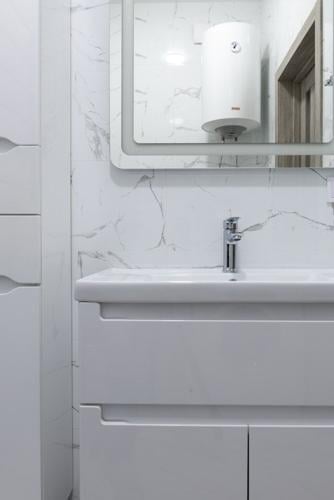
Water heaters are essential appliances that are needed in every home to survive the winter season. The average life of a water heater is about 8 to 12 years, so an average person has to get a water heater generally once or twice in their life. This is probably why most people have little to no knowledge about water heaters and what type would be best for their homes. There are generally five main types of water heaters in the market, which all differ based on their energy consumption, working efficiency, and modern technology.
Having so many different options in the market can also make selecting the most suitable water heater confusing for people. Therefore, you must understand how each type works and what it’s best for. To help, here is a simple guide to understanding the different kinds of water heaters.
1. Conventional Water Heater
Conventional water heaters have been in the market for a long while. They comprise a massive insulation tank where water is kept and heated. This should be your go-to option if you’re on a low budget, as you will get the lowest price for a conventional water heater than for any of the other types. Plus, its installation price is also the cheapest out of all other options. A traditional water heater would also ensure good functionality no matter where in the world you live. Different types require specific conditions to function, while this option will secure smooth and steady performance irrespective of weather conditions.
While there are many advantages to selecting a conventional water heater, keep in mind that its alternatives were created in the first place to reduce the high amount of energy consumption of traditional heaters. They also require a considerable amount of space to store the water, are susceptible to water damage, and require regular maintenance.
2. Tankless Water Heater
Unlike conventional water heaters, tankless water heaters do not need to store warm water. Instead, a tankless water heater can provide instant warm water at the press of a button. The heating system of a water heater of this type works on the principle of superheated coils. Due to the instant heating performance of tankless water heaters, they consume far less energy than conventional ones. Because of this, your overall bill would be reduced. These are only some of its convincing features, although you should still get helpful information about how to buy a tankless water heater and then make your decision. Another quality of this type of water heater is its compact size, which’s also perfect if you don’t have a lot of extra space to install a water heater. The only disadvantage of getting a tankless heater is its high installation price compared to conventional heaters, but in the long term, it is a good investment.
3. Solar-powered Water Heater
Solar-powered water heaters use state-of-the-art solar technology to heat water using light energy. Solar panels are installed on rooftops directly connected with water tanks in a closed-loop and transfer power to heat water effectively. Not only is this option eco-friendly and efficient, but it will also reduce your energy consumption tremendously. However, you will have to be mindful of this system’s high installment charges, as well as its environmental requirements. Solar-powered water heaters work best in sunny environments, but if you live in an area with insufficient sunlight, this option becomes useless.
4. Heat Pump Water Heater
Heat pump water heaters are hybrid systems that combine the conventional method with modern techniques. The heat pump’s system uses energy to transfer heat from the surrounding environment to heat the water. This essentially means much less energy consumption than conventional systems, but also excellent efficiency and performance. Unlike other alternatives, heat pump water heaters require far less maintenance and show long-term efficiency. The space requirements for this system, however, are more than moderate. They need about 1000 cubic feet of space to function correctly.
5. Condensing Water Heater
Condensing water heaters work on the principle of heat exchange and utilize the already present exhaust gases in a home to heat water. They cut energy consumption by up to 30% and reduce your gas and electricity bill by a lot. Condensing water heater systems can provide instant hot water just like tankless water heaters but come with the same expensive price tag. Another disadvantage is the high space requirement for condensing water heaters.

Deciding what type of water heater you get will affect a lot of your expenses. Investing one time is better than having to pay massive amounts every month. Plus, eco-friendliness is another crucial factor to consider when choosing the type of water heater you want for your home. So, it’s best to understand how each type works and compare and contrast to make an informed decision.



(0) comments
We welcome your comments
Log In
Post a comment as Guest
Keep it Clean. Please avoid obscene, vulgar, lewd, racist or sexually-oriented language.
PLEASE TURN OFF YOUR CAPS LOCK.
Don't Threaten. Threats of harming another person will not be tolerated.
Be Truthful. Don't knowingly lie about anyone or anything.
Be Nice. No racism, sexism or any sort of -ism that is degrading to another person.
Be Proactive. Use the 'Report' link on each comment to let us know of abusive posts.
Share with Us. We'd love to hear eyewitness accounts, the history behind an article.